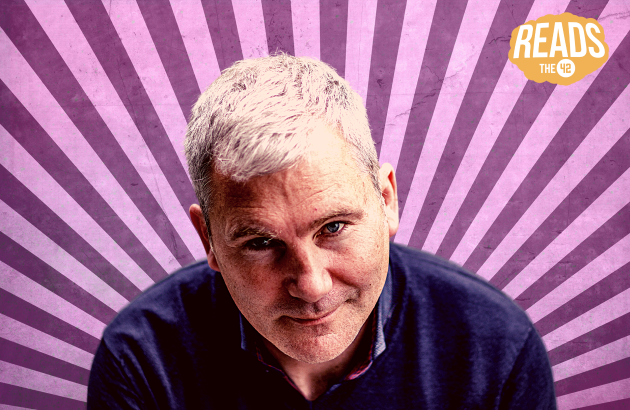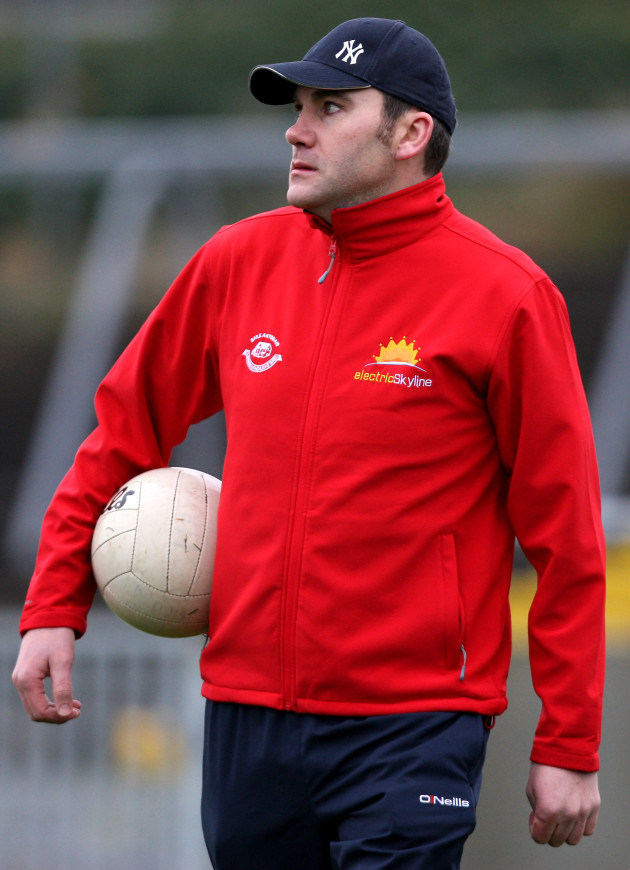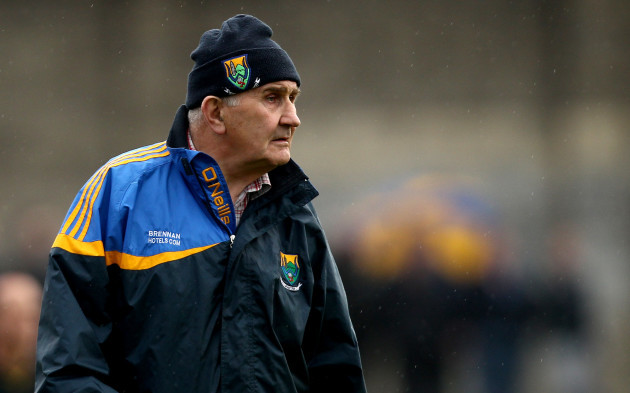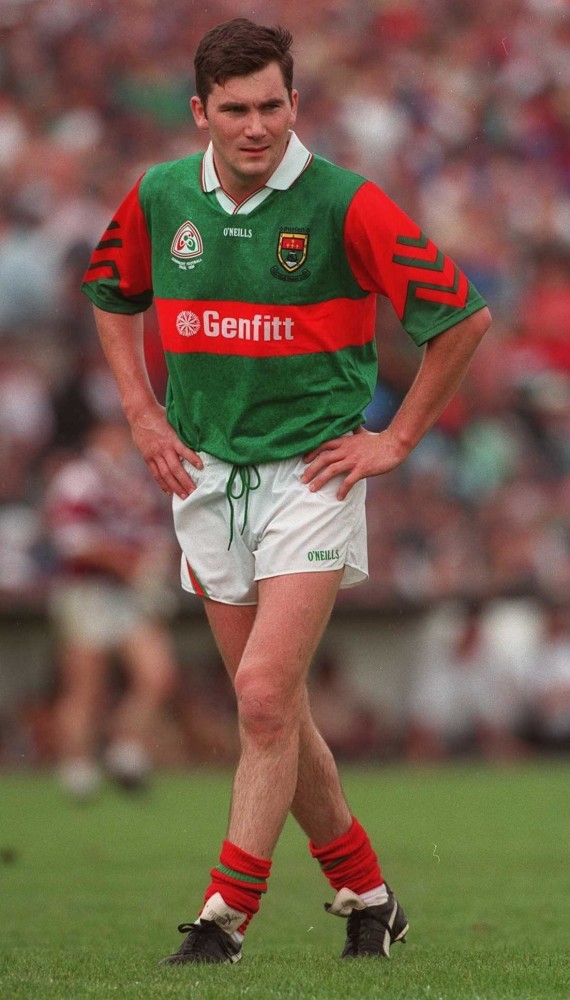IT’S NOT AN exaggeration to say that the decision to appoint James Horan as manager in the winter of 2010 transformed Mayo football.
At the time, it felt like a gamble from the county board when they chose the the 38-year-old Ballintubber man from a three-man shortlist that also included short-odds favourite Tommy Lyons and Horan’s former team-mate Anthony McGarry.
Mayo had won just five of 12 championship games during John O’Mahony’s four years in charge, culminating in defeats to Sligo and Longford in his final year. For a county that had been to two All-Ireland finals in the previous six years, morale was low.
In his seven campaigns across two separate stints, Horan’s record of seven Connacht titles, seven All-Ireland semi-finals and four trips to the final is unmatched.
- For more great storytelling and analysis from our award-winning journalists, join the club at The42 Membership today. Click here to find out more>
How did it happen? A county known for producing outrageous individual talent saw a crop win the All-Ireland U21 title in 2006. It became the springboard for the success that would arrive in Horan’s first tenure.
“There was a lot of talent there in the county at that time from 2006 after winning an U21 All-Ireland,” Paddy McNicholas, who was Mayo vice-chairman in 2010, tells The42.
“We won four Connacht U21 titles at that time, we won in ’05, ’06, ’07 and ’08. So there was a lot of talent there and he said he was going to tap into that, which he did.”
McNicholas was part of a county board delegation that met with Horan to sound out his interest in the job.
“He mentioned about training, it was the first time a lot of us had heard ‘strength and conditioning.’ He brought in a person for S&C,” he explains.
One newspaper reported that, going back to John Maughan’s reign, players had been ducking out of the conditioning work required. Under O’Mahony, Mayo trained collectively just one night a week in the early part of the season, with players tasked with overseeing their own physical preparations during the week.
Upon Horan’s appointment, the set-up was professionalised and S&C became non-negotiable.
Horan instilled a high performance culture and the conditioning of his team became a central tenet of that.
“I think that was the start of Mayo’s upturn in inter-county football,” McNicholas says.
“He was a big man into rugby. He’d studied a lot on New Zealand and Australia. It seems at that time those teams had been doing a lot of strength and conditioning and he decided that was the plan for Mayo, for the future.
“I think it’s a plan that’s worked well.”
S&C pathways were put in place for development squads, which allowed Mayo bring players with the athletic profile of Oisin Mullin, Eoghan McLaughlin, Ryan O’Donoghue and Tommy Conroy.
By the time six veterans walked away in the winter, the team had already evolved to a younger, quicker model.
If Mayo manage to end the famine this evening, no man would have been more responsible than James Horan.
****
At a Mayo county board meeting 11 years ago this week, chairman James Waldron called out a list of seven candidates for the senior football manager’s job: John Maughan, Denis Kearney, Anthony McGarry, Mick O’Dwyer, Tommy Lyons, Tommy Carr and James Horan.
It was proposed that each candidate outline their plans in a document to be submitted within two weeks. A five-man sub-committee was established to assess the submissions and report back to delegates before interviews took place.
It consisted of county board chairman James Waldron, secretary Sean Feeney, treasurer JP Lambe and vice-chairman McNicholas.
“In Mayo there was always this pressure to bring in the outsider,” concedes McNicholas.
“While they brought in an outsider back Jack O’Shea in the 90s and won a Connacht final and got to an All-Ireland semi-final. They brought in Mickey Moran who led us to an All-Ireland final as well.
“(Micko’s) name was thrown around, there were people linked with him in the county, some people that were linked with him attended club games in the county, but he didn’t get the nomination, I suppose and that was it.”
The presence of former Kerry boss O’Dwyer’s name on the shortlist caused unease in some quarters. Weeks earlier, it was reported that then Wicklow manager had indicated he was happy for his name to go forward for the job.
“I have no decision made,” he told the Irish Independent. “I have had a word with a few in the last six months but I have made no decision.
“The 32 counties in Ireland would be appealing to me — I’d take Kilkenny as quick as I’d take Mayo if I got a notion. And I’ve proven that — I took Kildare when they were down, I took Laois when they were down and I took Wicklow. It wouldn’t matter one way or the other. I love training teams, I’m back training my old club in Waterville and I still get a buzz out of it.
“Mayo think they’re up there (competing for All-Irelands) all the time. They are producing great underage players and it’s amazing they haven’t achieved. I suppose they should have won an All- Ireland in 1996 when Meath beat them. They have the players, maybe too many players.”
The Mayo public made the opposition to the O’Dwyer links known. Five days after the his candidacy was announced, he withdrew from the race to succeed O’Mahony. The 74-year-old ended up staying with Wicklow for the 2011 season, which proved to be his last with the county.
Maughan, who’d already managed Mayo twice in the past, had public support but the board were less keen on him. When he saw the composition of the selection committee, he read the tea leaves and withdrew his candidacy. Kearney also dropped out of the process.
The sub-committee met with the remaining candidates as pre-interviews.
“We met him and we met other candidates as well,” McNicholas says of Horan. “We went through what we expected from them.”
Lyons was the high-profile candidate, who had enjoyed success in Offaly and during his first year with Dublin.
Despite the presence of a manager with inter-county experience, Horan’s bid had plenty going for it. Looking back, his preparation stands out to McNicholas.
“We were certainly impressed with him and that he was going to look for new players in the county.
“But we felt we had the talent in our own county to have our own manager. He had been a successful inter-county player and he’d had success with his own club Ballintubber.
“He was the manager when they won their first-every county senior title. So we were looking at other counties as well that had brought in outside managers and they hadn’t been successful all the time.
“He had done a lot of research into management and the whole lot, research into the players and he knew the players that were coming through. He had the background work done before he met us.”
Horan’s initial vision for Mayo was to reclaim the throne in the western province.
“The Connacht final was a big thing at the time, we hand’t won one in two or three years. That was the thing he was aiming at.”
In the end, Horan, Lyons and McGarry were the names that went forward for interviews.
Mayo county board put another five-team team together, consisting of Waldron, Lambe, youth officer Padraic Walsh, Garrymore chairman John Farragher representing the clubs and Denis O’Boyle from the Connacht coach education committee.
In an interview with the Irish Daily Mirror, O’Dwyer was withering in his assessment of the three candidates : “With all due respect to the three remaining candidates, I wouldn’t think any of them are ideal for the job. I’d tell the county board to put the three names in a hat and pick one.”
Despite his relative inexperience, Horan’s credentials were strong.
“Even when he came into us in 2010, he might have been the only forward in Mayo with two All-Stars at the time,” says Andy Moran. “Ye boys (the media) had a good habit at the time of writing Mayo off as having no forwards.
“So, he commanded respect straight away. He won the county title with Ballintubber, which was a big achievement at the time in 2010. So he had that respect and then he just demanded really, really high standards.”
Waldron recalls Horan’s impressive pitch for the job.
“He had considerable knowledge of all the players in the county from the fact he was managing Ballintubber at the time and he knew first hand what was around the county.
“He was very well prepared. He had a good plan in place. We were very impressed with it.
“The backroom team he had in mind was very attractive at the time,” he adds.
“I remember, it was unanimous on the five-man committee that elected James that he was the best man for the job.
“I think myself that you can’t beat a homegrown manager. It was probably one of my last acts before my term came to an end.”
It turned out to be a wise move.
“What he brought in has really worked,” adds Waldron. “He had great success for the first few years, then had the break and to come back in again now. It’s promising for the county.”
McNicholas concedes, “At that time in 2010 when we met James if you said we’d win (what we did) and get to I don’t know how many All-Irelands over the next 10 years, you’d be laughed at.”
You sense Horan always had faith it could be done. The trick was convincing everyone else they could do it.
“That’s his biggest strength,” says Moran. “Just his ability to go into a dressing room and make everything else believe.
But the manager’s first media briefing hinted at his ambitions and the confidence he had in his ability to set them on the right path.
“It’s probably not in a great place that’s fair to say,” he told the local press. “I remember when I started playing with Mayo in 1995 it probably wasn’t in a great place either and in nine months we were in an All Ireland final.
“Things can change very quickly, I’m not promising an All Ireland final and saying we’ll be there, but sometimes we overdo the highs and the lows.
“But if we set the environment right, set the attitude right, get the right character and the right mix of players, and really set down a good set up, then we can see what happens from there to try to develop some of the players we have, and try and see what happens.”
For more great storytelling and analysis from our award-winning journalists, join the club at The42 Membership today. Click here to find out more>




